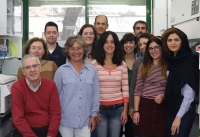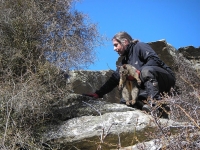Jueves, 29 Agosto 2019 12:50
PRODEHESA MONTADO | The Struggle to Save the Dehesa, a Unique Ecosystem in Danger
Escrito por UCC+iA research project is advocating for the importance of this livestock exploitation system to mitigate climate change
Publicado en
Nature science
Jueves, 29 Agosto 2019 12:45
ECOPOTENTIAL | Satellite Images to Reveal Mankind's Footprint on the Planet
Escrito por UCC+iThe ECOPOTENTIAL project seeks to monitor how human activity is modifying ecosystems in protected areas
Publicado en
Nature science
Jueves, 29 Agosto 2019 08:26
ALGARED | Algae: Scientific assets to resolve major environmental and health challenges
Escrito por UCC+IThe 'Algared +' project has yielded a better understanding of how nitrogen assimilation works in plants
Publicado en
Nature science
Etiquetado como
Miércoles, 28 Agosto 2019 08:19
Individual Quality Analysis of Each Iberian Pork Loin Now Possible
Escrito por UCC+iA research team at the University of Córdoba has tested the effectiveness and speed of NIR technology to individually analyse the quality of intact cuts of Iberian loin
Publicado en
Nature science
Etiquetado como
Miércoles, 28 Agosto 2019 08:04
Science Wages a Battle Against the Swine Sector’s Costliest Virus
Escrito por UCC+IA research team at the University of Córdoba has compared the behaviour of two different strains of the Porcine Reproductive and Respiratory Syndrome Virus, to expedite the production of an effective vaccine in the future
Publicado en
Nature science
Etiquetado como
Lunes, 26 Agosto 2019 11:07
The International Research Community Evaluates GPS Collars to Geolocate Wild Animals
Escrito por UCC+iA scientific article analyses the results yielded by GPS collars in ecological studies on wildlife by combining data from 167 projects worldwide
Publicado en
Nature science
Etiquetado como







